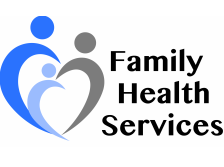Diabetes News – August 2020
August is National Immunization Awareness Month
Immunizations are an important part of yearly checkups and not just for kids. Each year thousands of adults in the United States get sick from diseases that could be prevented by vaccines — some people are hospitalized, and some even die. People with diabetes (both type 1 and type 2) are at higher risk for serious problems from certain vaccine-preventable diseases. Getting vaccinated is an important step in staying healthy. If you have diabetes, talk with your doctor about getting your vaccinations up-to-date.
Why Vaccines are Important for You
Diabetes, even if well managed, can make it harder for your immune system to fight infections, so you may be at risk for more serious complications from an illness compared to people without diabetes.
-
- Some illnesses, like influenza, can raise your blood glucose to dangerously high levels.
- People with diabetes have higher rates of hepatitis B than the rest of the population. Outbreaks of hepatitis B associated with blood glucose monitoring procedures have happened among people with diabetes.
- People with diabetes are at increased risk for death from pneumonia (lung infection), bacteremia (blood infection) and meningitis (infection of the lining of the brain and spinal cord).
- Immunization provides the best protection against vaccine-preventable diseases.
- Vaccines are one of the safest ways for you to protect your health, even if you are taking prescription medications. Vaccine side effects are usually mild and go away on their own. Severe side effects are very rare.
Frequently recommended adult vaccines may include: Influenza, Pneumococcal, Hep B, Zoster and Tdap.
Content source: National Center for Immunization and Respiratory Diseases https://www.cdc.gov/vaccines/adults/rec-vac/health-conditions/diabetes.html
With the summer growing season in full swing and fresh veggies abundant. Here is a diabetic friendly treat that help you with all that extra zucchini.
5-Ingredient Zucchini Fritters
INGREDIENTS
- 4 cups shredded zucchini
- 2/3 cup all-purpose flour
- 2 large eggs, lightly beaten
- 1/3 cup sliced scallions (green and white parts)
- 2 Tablespoons olive oil
- Sour cream, for serving (optional)
INSTRUCTIONS
Place the shredded zucchini in a colander set over a bowl and sprinkle the zucchini lightly with salt. Allow the zucchini to stand for 10 minutes. Using your hands, squeeze out as much liquid from the zucchini as possible. Transfer the zucchini to a large bowl.
Add the flour, eggs, sliced scallions, 1/4 teaspoon salt and 1/8 teaspoon pepper to the bowl, stirring until the mixture is combined. Line a plate with paper towels.
Add the olive oil to large sauté pan set over medium heat. Once the oil is hot, scoop 3-tablespoon mounds of the zucchini mixture into the pan, pressing them lightly into rounds and spacing them at least 2 inches apart. Cook the zucchini fritters for 2 to 3 minutes, then flip them once and cook an additional 2 minutes until golden brown and cooked throughout. Transfer the zucchini fritters to the paper towel-lined plate and immediately sprinkle them with salt. Repeat the scooping and cooking process with the remaining zucchini mixture.
Serve the zucchini fritters topped with sour cream (optional) and sliced scallions.
Community offerings: *
* Many community offering have been postponed, changed or canceled as a result of the coronavirus/COVID 19. Please call the number listed for the event to verify availability, dates and times.
If you have questions regarding Coronavirus/COVID-19 please call 1-833-4-ASK-ODH (1-833-427-5634)
Or, go to https://www.cdc.gov/coronavirus/2019-nCoV/index.html or https://coronavirus.ohio.gov/wps/portal/gov/covid-19/.
Diabetes Empowerment Education Program (DEEP) –Erie County Senior Center
COST:
Free
CONTACT:
Tina Elmlinger
419-624-1856
The Diabetes Empowerment Education Program [DEEP] is offered every Wednesday for six weeks. Good attendance is important. This free program is for diabetics, pre-diabetics, and spouses or caregivers of a diabetic. Residents of Erie County, aged 60 or older, please call 419-624-1856 to register.
Diabetes Support Group – Firelands Regional Medical Center
The Diabetes Support Group presented by Jean Feick CNP,CDE, meets the third Wednesday of each month Sept–November and January-May from 12:00pm –1:00pm. This meeting is free to the public and no registration is required. Attendees are welcome to purchase lunch in the hospital cafeteria and come to the adjacent Cafeteria Meeting #1. A different topic will be reviewed each month. If you have questions, please contact the Diabetes Education Department at 419-557-6992.
HEALTH & WELLNESS SCREENING – offered by Firelands Regional Medical Center
You must Pre-register for all Lab Work at 419-557-7840.
Port Clinton Health & Wellness Screening
Dr. Braniecki and Widmer
3960 East Harbor Road
Port Clinton, OH
Saturday, August 15
7:30 AM – 9:30 AM
Sandusky Health & Wellness Screening
Firelands Main Campus
1111 Hayes Ave
Sandusky, OH
Saturday, September 12
7:00 AM – 9:30 AM
Castalia Health & Wellness Screening
Drs. Kuns
101 So. Washington Street
Castalia, OH
Saturday, October 17
7:30 AM – 9:30 AM
Health & Wellness Screenings include:
- Complete Blood Count with Metabolic & Lipid Panel (No Eating or Drinking for 12 Hours – Water Allowed – includes liver and kidney function studies, fasting blood sugar, thyroid, cholesterol, HDL/LDL and triglyceride levels along with a complete blood count.) – $45;
- Hemoglobin A1C (A three month report card on how well your blood sugars have been running. A test used to diagnose diabetes and/or to evaluate how well your treatment plan is working.) – $25;
- PSA (Prostate Specific Antigen)- $30;
- Vitamin D – $35;
- TSH – $25
Diet and exercise are an essential part of diabetes management, but so is routine testing.
The A1C test—also known as the hemoglobin A1C or HbA1c test—is a simple blood test that measures your average blood sugar levels over the past 3 months. It’s one of the commonly used tests to diagnose prediabetes and diabetes, and is also the main test to help you and your health care team manage your diabetes. Higher A1C levels are linked to diabetes complications, so reaching and maintaining your individual A1C goal is really important if you have diabetes.
Last quarter, 71% of our diabetic patients had an A1C of less than 9%. Talk with your provider to discuss the right options for you.



